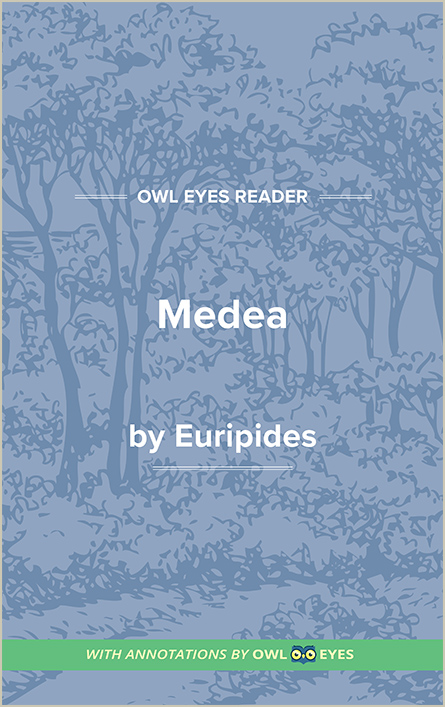Analysis Pages
Irony in The Medea
Irony Examples in The Medea:
The Medea
🔒"I myself, when princely wrath Was hot against thee, strove with all good will To appease the wrath, and wished to keep thee still Beside me. ..." See in text (The Medea)
"I am full of hidden horrors!..." See in text (The Medea)
"Which, ere yet it be too late, I sweep aside. ..." See in text (The Medea)

